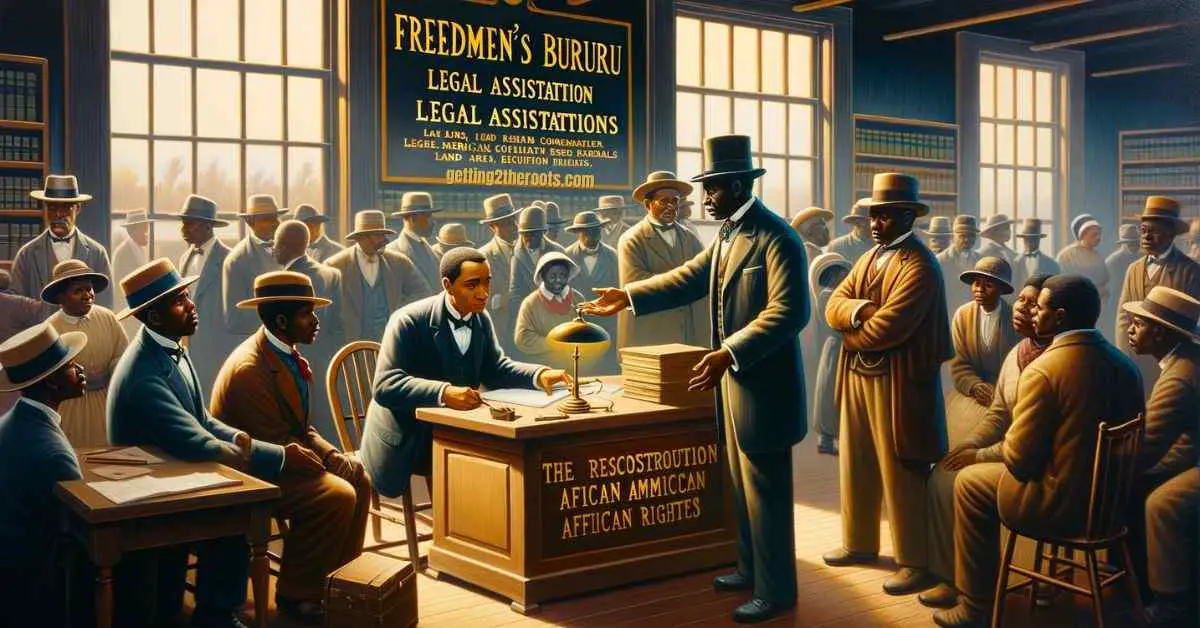The untold stories and hidden histories of African American Ancestry Before 1870 provide rich and crucial insights into understanding the complex fabric of America’s past.
Uncovering these narratives can be challenging due to the scarcity of comprehensive records and the specific nature of slavery documentation that obscures individual identities.
The journey is indeed time-demanding and rigorous but with patience and the right approach, piecing together the fragmented history becomes feasible.
This study aims to equip individuals with knowledge on where to start.
Navigating the intricacies of tracing African American Ancestry Before 1870 can be challenging.
However, by leveraging key resources like census records and tapping into non-traditional sources such as slave narratives and Freedmen’s Bureau records, the journey becomes more feasible.
These tools are instrumental in piecing together the rich tapestry of African American Ancestry Before 1870.
Dive into our latest article, “Tracing Ancestors | Free Starter Guide,” and unravel the mysteries of your lineage. [ Dive In Now!]🌳🔍
African American Ancestry Before 1870: Guiding Your Discovery
Tracing African American Lineage Before 1870 via Historical Records
Historical records serve as invaluable tools for the scrutiny of the human past.
It enables researchers to unravel stories whose ancestry and lineage are often hidden within the complexities of historical events.
In effect, these records offer credible pathways to trace African American lineage before 1870.
Even in the face of the lingering challenges imposed by the institution of slavery and the subsequent lack of comprehensive record-keeping,
Emphasizing the necessity for painstaking research, one primary source of evidence is the Federal Census records.
African American Ancestry Before 1870: Utilizing National Census Records
Every decade since 1790, the United States has engaged in a national census, a practice entrenched in Article I, Section 2 of the U.S. Constitution.
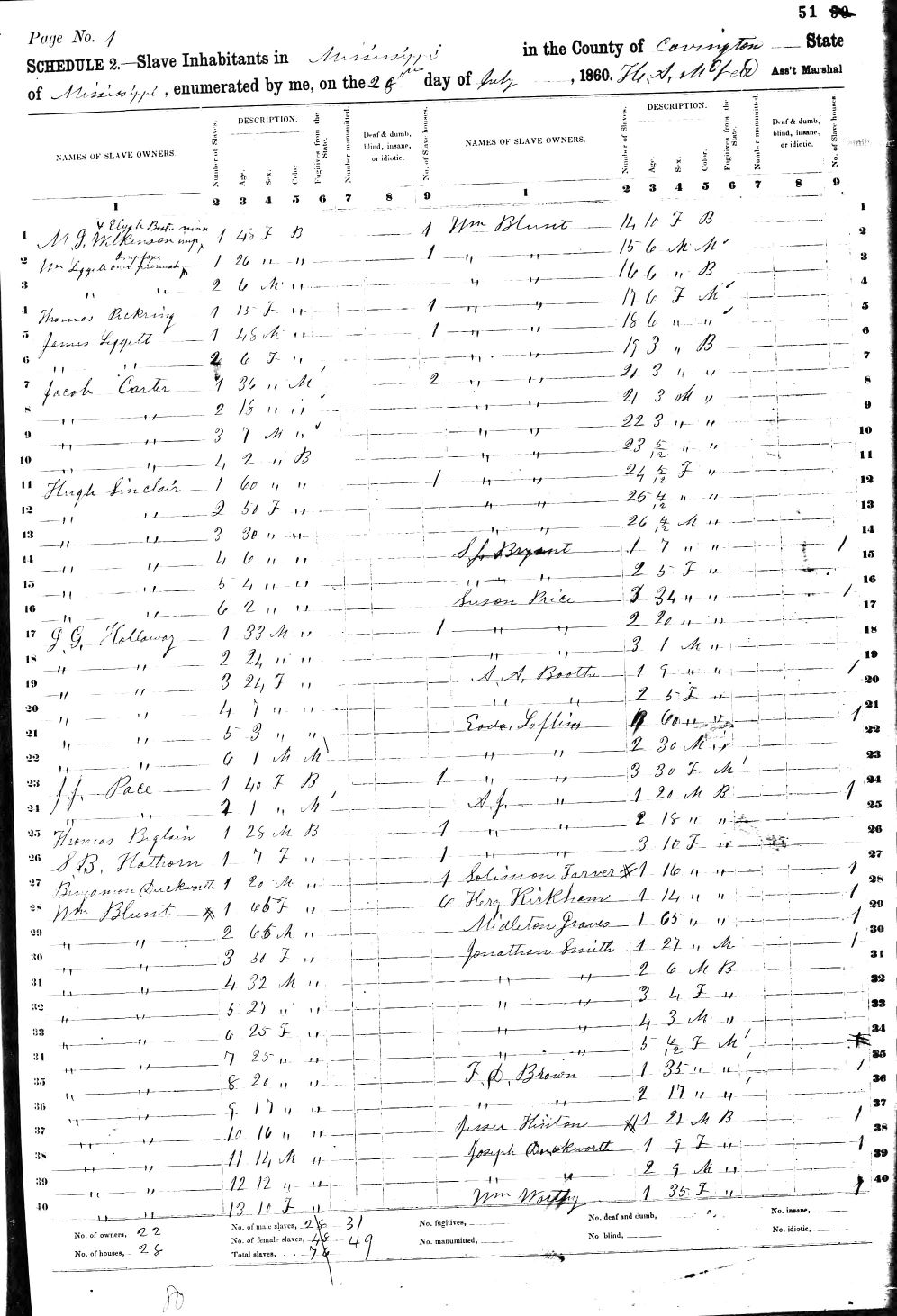
🌟 Discover the Wealth of Information in the Census! 🌟 For an insightful and quick reference on what each census from 1790 to 1950 entails, refer to our comprehensive article, “What’s In The Census | 1790 To 1950.”
Unlock detailed knowledge and enhance your understanding by diving into this rich resource. Don’t miss out! [🔗 Read Now]
Censuses between 1790 and 1860 included the enumeration of slaves, often under their owner’s name, without mention of their personal details.
However, the 1870 census, for the first time, constituted a record of former slaves as individuals with both first and last names, thus becoming a crucial base point for research.
Working back from this 1870 benchmark, the identification of potential slave owners can serve as an instructional guide.
1860 Slave Schedules: A Key to African American Ancestry Before 1870
The 1860 Slave Schedules, a distinct part of the Federal Census, cataloged slave owners and the enslaved by age and gender, omitting names.

When harmonized with the 1870 census information, it becomes a powerful tool
It forges essential connections necessary for reconstructing African American ancestry.
This combined approach offers a more comprehensive perspective, enabling richer, more detailed genealogical research.
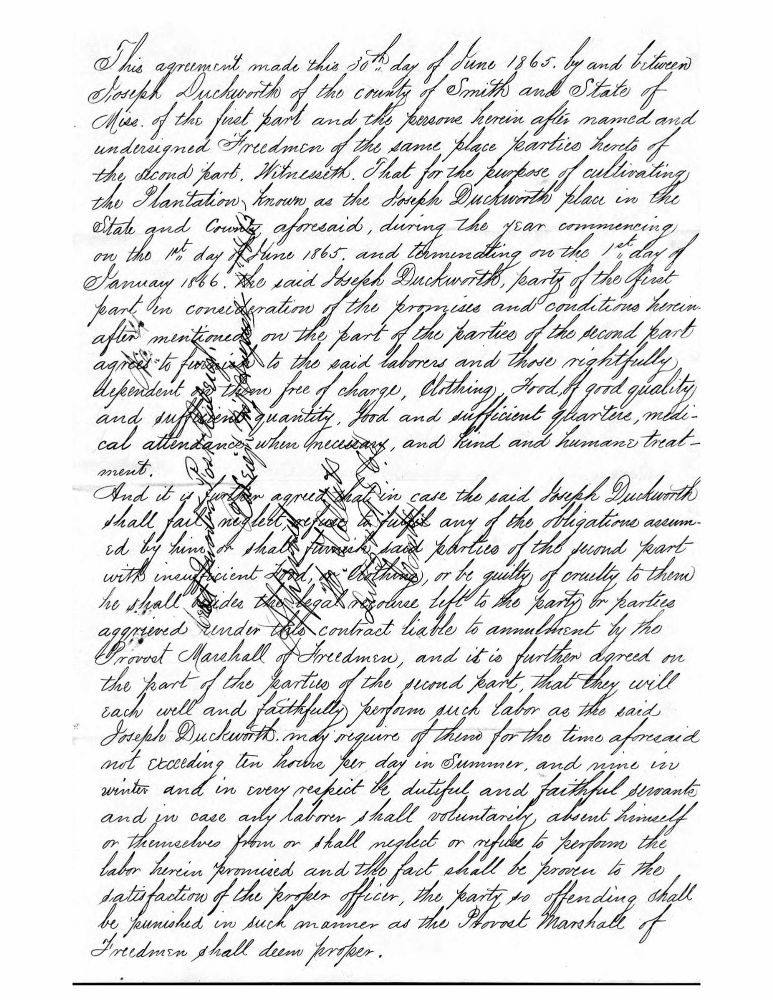
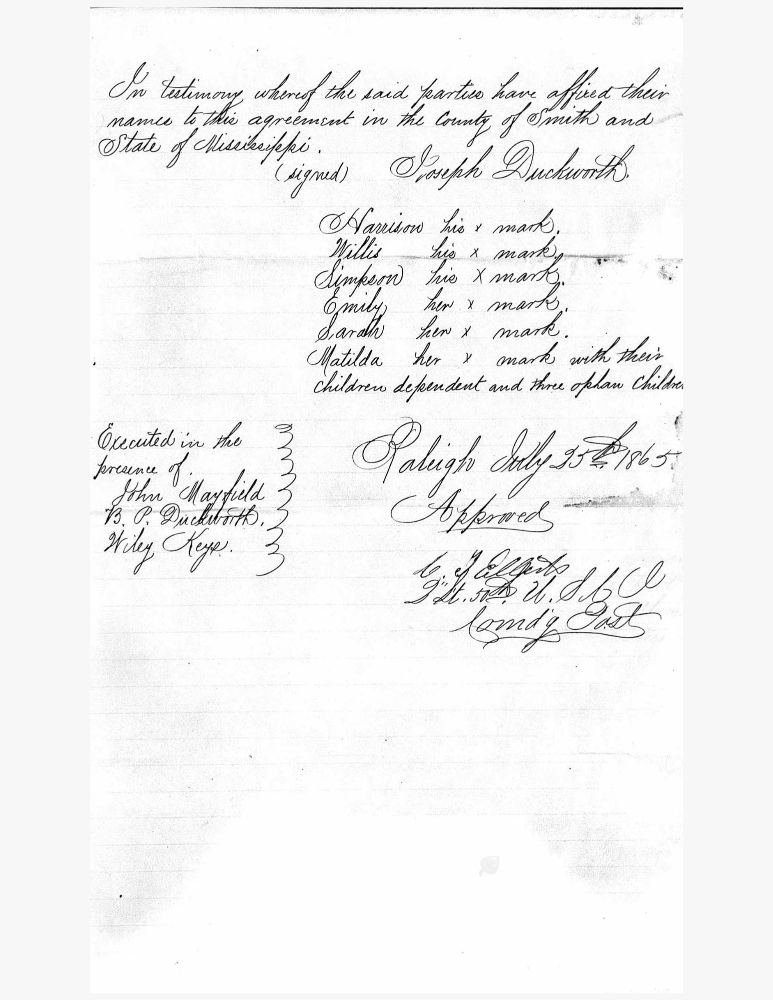
The Freedmen’s Bureau: Illuminating African American Ancestry Before 1870
The Freedmen’s Bureau (1865–1872) is a notable governmental database established to assist freed slaves.
It coordinated labor contracts, marriages, and complaints and offered legal representation.
The Bureau hosts a wealth of data. Labor contracts in the database often list family members.
Additionally, the Freedmen’s Bureau Marriage Records preserve vital information about African American families and post-Civil War marriages.
Church Records: A Spiritual Journey in African American Ancestry Before 1870
African American church records, too, provide an underutilized wealth of information.
Churches often served as institutional bedrocks for African American communities, documenting births, marriages, and deaths diligently.
Even though these records may be fragmented and dispersed, they provide a detailed anecdotal history complemented by personal testimonials.
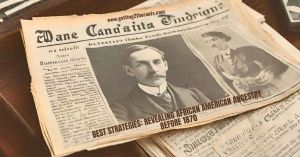
Newspapers and Advertisements: Unfolding African American Ancestry Before 1870
Runaway Slave Advertisements: These are crucial resources that unexpectedly provide personal information about enslaved individuals.
- Names: Often listed, helping to identify the individuals.
- Ages: Giving a sense of the time and era they lived in.
- Linguistic Abilities: Highlighting their communication skills or languages spoken.
- Physical Descriptions: Providing a visualization of their appearance.
- Family Connections and Names: Sometimes included, offering a glimpse into their familial ties and relationships.
Property Records of Enslavers: Tracing African American Ancestry Before 1870
Plantation records and wills serve as essential resources for uncovering historical data, as they frequently listed enslaved individuals as property or chattel.
These documents, however, can be elusive and dispersed across various local, state, and national archives, making them challenging to locate and access.
Despite these difficulties, they remain valuable tools for weaving together the threads of ancestry and familial connections in genealogical research.
Tracing African American ancestry before 1870 is undoubtedly a challenging endeavor, requiring innovative strategies and meticulous cross-referencing of various historical records.
Despite these challenges, the endeavor is profoundly rewarding, fostering a deeper understanding and appreciation of African American heritage, history, and resilience.
This painstaking journey unfolds stories of endurance, survival, and the rich tapestry of African American life throughout history.
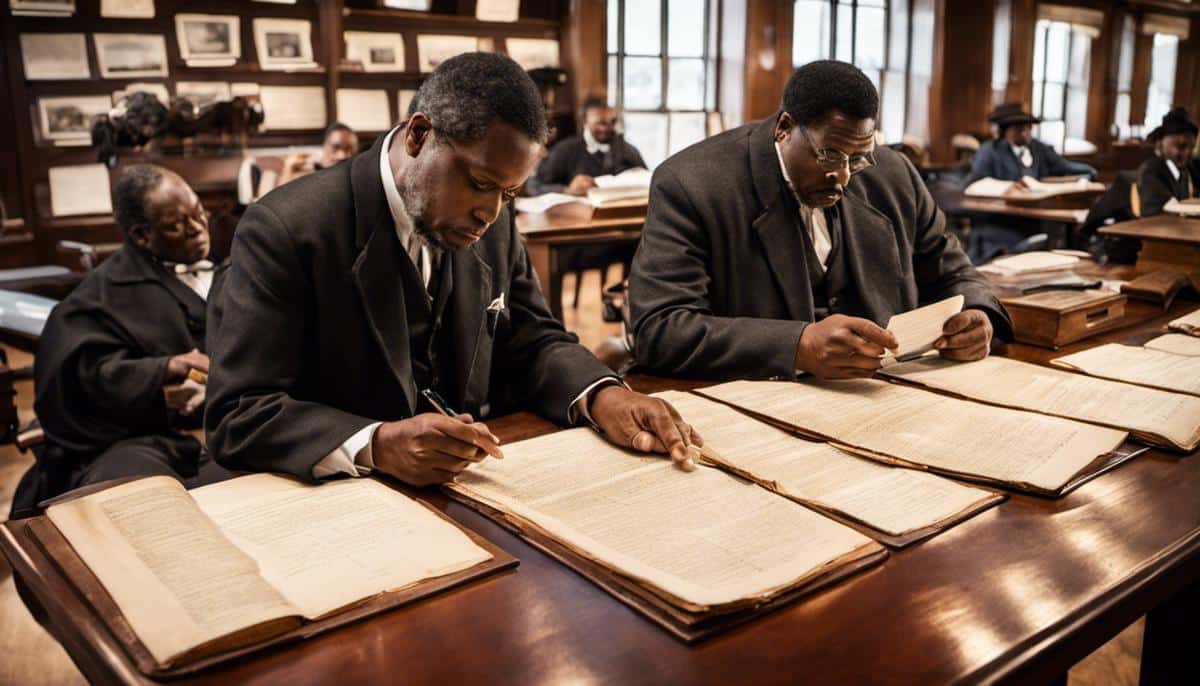
Exploring Census Records: A Pillar in Tracing African American Ancestry Before 1870
In-depth endeavors to trace African American ancestry before 1870 by leveraging census records and other complementary data sources are not only beneficial but often essential.
Although history has complicated this task through systematic erasure, numerous doors allow access to the segregated past.
Enabling us to discern valuable shards of our lineage and identity. Once serious researchers understand the basics of:
- The federal census records,
- The slave schedules,
- Freedmen’s Bureau records,
- Importance of church records,
- Runaway slave ads,
- Plantation records,
- Wills,
They may continue their research in other, less common ways.
Unconventional Records: The Untapped Reservoirs of Information
County records are often unconventional but precious repositories of facts.
Within these seemingly insipid bureaucratic logs may hide inventories of estates, deeds of sale, and court cases that subtly but surely present valuable data about enslaved individuals.
The tax assessment manuscripts are indeed valuable resources to delve into. They frequently hold a plethora of insights regarding property ownership.
These documents might also feature individuals who haven’t been documented elsewhere, subtly offering the essential links needed to trace one’s ancestry.
The analysis can make it easier to find African American ancestors in these records by designating them with codes like “N” for Negro and “M” for mulatto.
Broadening Research Horizons: Beyond Conventional Genealogical Pathways
Delve into military records, and specifically muster rolls, can offer another viable pathway, providing data on African American ancestry before 1870.
Individuals are depicted as mere property, devoid of personhood. Essential biodata, especially surnames, are often missing.
However, digging into these less-traveled roads requires understanding.
They may not always yield the appropriate information. Individuals are depicted as mere property, devoid of personhood.
Essential biodata, especially surnames, are often missing. This absence creates a significant gap in our lineage quest.
Despite these setbacks, one could use “cluster genealogy.”
This is an innovative technique. Instead of searching for individual ancestors, it involves piecing together a narrative.
This is done by exploring a research target’s socio-historical context, community, and associates.
Anchoring the research in a historical context can yield vital clues.
It is possible to ascertain communal movement patterns, naming trends, and impactful localized events.
This understanding allows a more perceptive evaluation of records.
Uncovering African American Ancestry Before 1870 is complex and fraught with obstacles.
Yet, it bears the potential for discovering truths about identity, resilience, and history.
Every effort helps in piecing together the African American genealogical puzzle. The quest continues.

Utilizing Non-Traditional Sources: Unearthing Hidden Histories of African American Ancestry Before 1870
Through the dense and intricate maze of history, unorthodox sources unveil essential links in the pursuit of tracing African American Ancestry Before 1870.
As mentioned above, navigating through this milieu of data is a compound task, yet the reward lies in the profound tales of identity, resilience, and history that emerge.
Areas unconventionally scoured, such as county records, tax assessments, and military records, may contain invaluable insights.
Exploring County Records in African American Ancestry Before 1870American Genealogy
County records hold a multitude of information pertinent to tracing ancestry.
These could include deeds, court records, estate inventories, and even records of paupers and bastardy cases.
Each set of data adds a piece to the genealogical puzzle, aiding in the reconstruction of familial lineage.
Although enslaved individuals were often dehumanized as property, these records can still reveal vital clues.
Navigating Tax Assessments in the Quest for African American Roots
Tax assessments, an often overlooked resource, bear a unique angle of investigation, particularly for property ownership.
Property could include enslaved individuals, and taxed property was often listed with names or other identifying information.
These resources can be instrumental in tracing lineages from enslaved individuals to their descendants post-emancipation.
Military Records: Unveiling African American Lineages
Military records, namely from the US Colored Troops, offer rich details about African American soldiers who served during the Civil War.
Specifically, the Compiled Military Service Records (CMSR) are rich with details about each soldier, including birthplaces.
When this information is combined with family relationship data, it provides powerful leads.
However, there still exist gaps and lost connections, with trails that can suddenly become unclear or disappear.
Slavery masks live with anonymity, transforming individuals into commodities and leaving behind minimal genealogical traces.
Faced with these voids, adopting a wider perspective becomes essential.
Cluster Genealogy: A Novel Approach to Unraveling African American Ancestry Before 1870
Cluster genealogy, involving the study of a person’s broader socio-historical context—their FAN club (friends and neighbors)—uncovers connections between families, communities, and generations.
Exploring the times and places of ancestors, understanding their acquaintances, and examining each facet of their social and legal orbit galvanizes the narrative around their lives.
Also, immersing oneself in the layered history of a region or time period may reveal previously unseen details about ancestors.
Our understanding of an ancestor’s life expands by querying aspects such as social norms, economic trends, and political landscapes.
This wider lens can yield compelling clues about ancestral movements, occupations, and relationships.
Enlightening and profound as it is, this endeavor involves meticulously sifting through delicate truths and memories.
Conclusion
The process of tracing African American ancestry before 1870 is tangled with the poignant stabs of the past, testing the resilience of those committed to navigating this labyrinth.
Yet, the prospect of piecing together a coherent story of identity, roots, and heritage rewards the intricate process with immeasurable worth.
This calling to decode familial identity transcends mere curiosity, awakening a deeper kinship with the past—an inextinguishable connection with ancestors.
It also nurtures respect for history and an understanding of societal contours linked to slavery.
The excavation of these familial histories not only highlights resilience but also challenges us all to carry forward their legacy with enlightened respect and dignity.
The victories and tribulations of the past form a beacon of wisdom for today and tomorrow, forever anchoring us to our intertwined histories.
Navigating this genealogical journey does not merely produce a string of names and dates.
But it also weaves together stubborn fragments of individual human stories—a testament to centuries of courage, resilience, and the inexorable human spirit.
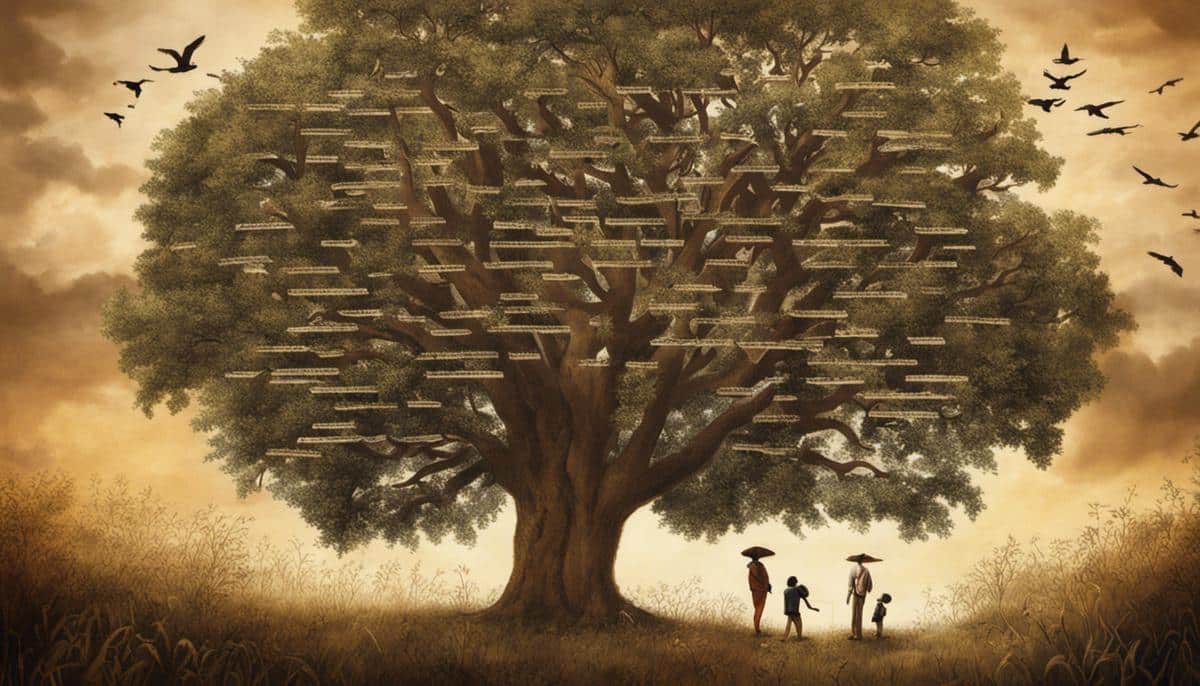
Immerse yourself in the rewarding journey of piecing together the untold stories of African Americans before 1870.
Learning how to navigate the difficulties of traceability opens up a world of rich history.
And it reveals the unique identities that the challenging system of the past obscured.
Going beyond traditional research methods and immersing oneself in non-traditional sources such as:
- Slave narratives,
- Plantation records,
- Freedmen’s Bureau,
Can open up a wealth of information about African American families, ultimately forging a connection to history that wasn’t previously possible.
Every piece of information sought and gained is a victory, a testament to the undying resilience and strength of those who prevailed against the odds.
Frequently Asked Questions (FAQs)
- What makes tracing African American ancestry before 1870 challenging?
- Tracing African American ancestry before 1870 was challenging due to the lack of official records, as enslaved individuals were often not included in censuses and other public documents.
- What strategies were most effective in tracing African American ancestry before 1870?
- Utilizing a variety of resources, such as plantation records, wills, and oral histories, as well as exploring community connections and networks, can be highly effective in tracing ancestry.
- Where should I start when trying to trace my African American ancestry before 1870?
- Start by collecting oral histories from family members, and then explore available records such as church records, slave schedules, and Freedmen’s Bureau records.
- Are there specific repositories or databases that focus on African American ancestry before 1870?
- Yes, there are specific databases, such as the Freedmen’s Bureau records, as well as repositories that house slave narratives and plantation records, that are useful for this period.
- How reliable are oral histories and community stories in tracing African American ancestry before 1870?
- Oral histories and community stories are valuable resources but should be cross-verified with available written and official records to ensure accuracy and reliability in tracing ancestry.

